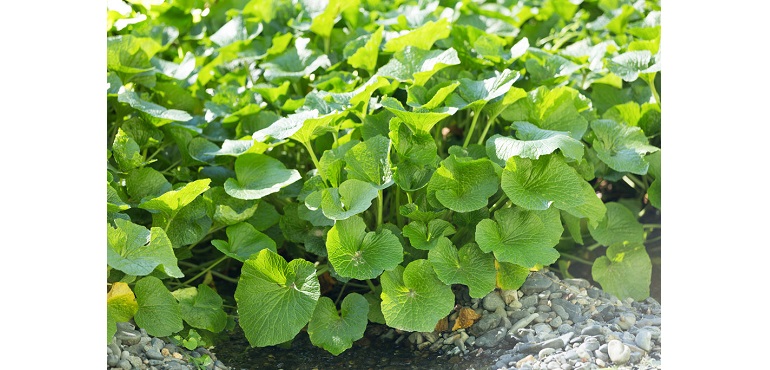
Tasty 'kick' from Northern Ireland for Japan's favourite herb
Wasabi, described as one of the world's most expensive crops and prized by Japan's sushi chefs, is now being grown commercially in Northern Ireland.
Behind the production is Wasabi Crop, a small business set up by Dr Sean Kitson, a respected scientific researcher, who started growing the herb, which is in short supply worldwide, on rich agricultural land near Portadown in county Armagh. Dr Kitson began growing the plant, in a huge polytunnel and using hydroponic techniques, for its recognised medicinal features.
He's already attracted the attention of a top Northern Ireland chef and hopes to export the wasabi leaves and paste to Japan.
Extensive scientific research led him to pinpoint the health benefits of the Japanese wasabi plant which include anti-inflammatory properties for joints and muscles. "It's a potent plant that has also been shown to help increase protection against bacterial infections in the body and mouth. Wasabi, furthermore, is rich in antioxidants that help to boost the immune system and can aid in removing harmful toxins from the body," Dr Kitson says.
Wasabi cultivation, he explains, stretches back to the ancient Japanese who were consuming the potent plant around 14,000 BC. "The cultivation of wasabi is mostly done in Japan and gained popularity through the serving of sushi. It has an interesting botany and is known as wasabia japonica, part of the Brassica family, which also consists of horseradish mustard and cabbage."
Demand for wasabi, particularly in Asia, is surging at a time when traditional suppliers in Japan are scaling back in production because of high labour costs involved in its cultivation and processing. It grows best when its roots are in clean, nutrient-rich, running water, as they are in the mountain streams of its native habitat in the Japanese Shizuoka Prefecture.
"The soil in county Armagh is rich and fertile, capable of growing a wider variety of plants than is currently the case," he adds. He imported wasabi plants last year and has recently succeeded in germinating them in Northern Ireland.
The first full-scale harvest of Northern Ireland wasabi, from last year's planting, is due next year. "To many, this may seem a long time, but it does take two years to grow top quality wasabi rhizomes, as the stem is known to botanists. The good news is that leaves and stems will be for sale later this year."
Wasabi Crop is the only commercial grower in Ireland and one of a handful outside Japan.
"The rhizome is the most valuable part of the plant and is used to produce freshly grated wasabi paste that Japanese chefs seek. After much research into cultivating wasabi, we have mastered the growing. Presently, we are growing mazuma wasabi. Our wasabi is authentic. There's a lot of fake wasabi on the market at the moment," he adds.
Freshly grated wasabi can be added to a variety of recipes and other foods and drink including ice cream and spirits such as vodka. It has a pungent and hot taste that's said to be very different from chilli. The wasabi 'kick' is said to be a zingy and refreshing hot flavour. "Not only is wasabi a herb it is a medicinal plant providing health benefits due to its key component of allyl isothiocyanate which releases during the grating process. The isothiocyanates enable wasabi to produce associated antibacterial, antimicrobial and antiparasitic properties."
It's a good source of dietary fibre and vitamin C and a provider of vitamin B6 in addition to the elements of calcium, magnesium, potassium and manganese. Wasabi is a tough plant to grow and can be cultivated in water using hydroponic technology.
"At Wasabi Crop, we have developed expertise through continuous chemistry to generate wasabi rhizomes, leaves and stems for all our customers."